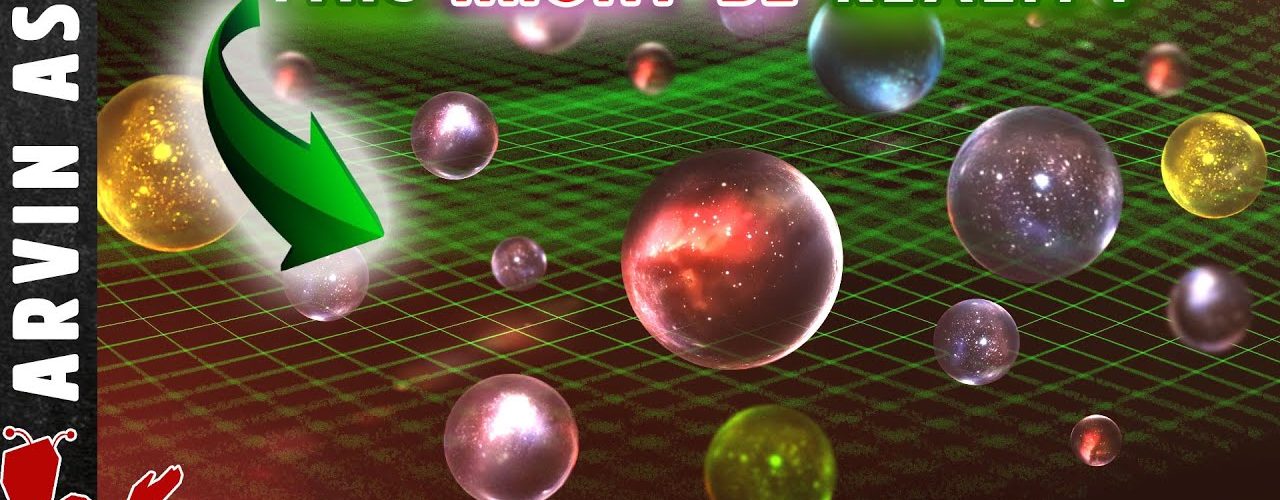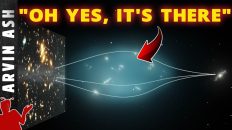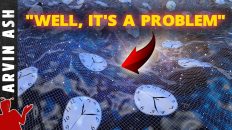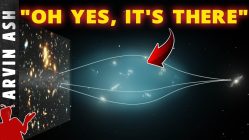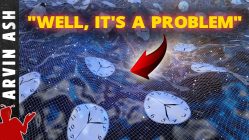Claim your SPECIAL OFFER for MagellanTV here: https://try.magellantv.com/arvinash. Start your free trial TODAY so you can watch “The Cosmos” about the controversy between God vs Science. https://www.magellantv.com/series/sci… Also enjoy the rest of MagellanTV’s science collection.
Background video on Cosmic Inflation:
References:
Alan Guth paper on Cosmic Inflation: https://t.ly/0yYW
Stephen Hawking paper on detecting multiverse: https://t.ly/FBo7
Eternal Inflation Wiki: http://t.ly/ClO7
Chapters:
0:00 – Why inflation? Why eternal inflation?
1:46 – Science vs God documentary
2:53 – How random radioactive decay is like inflation
5:40 – Show multiple universes could form
7:52 – Standard theory vs Eternal inflation theory
9:24 – What is the nature of the other universes?
10:28 – How do we prove the existence of multiverses?
12:04 – Stephen Hawking’s last paper
12:26 – From Copernicus to insignificance
Summary:
The big bang model has some problems – homogeneity, flatness, and lack of magnetic monopoles.
Cosmic Inflation occurred when the entire universe shortly after its beginning, expanded exponentially fast for a fraction of a second. One implication of this is that the universe on large scales may not be so homogenous. Inflation could have ended at different times in different places. This would mean that the universe is bigger and more complex than we realize. This concept is called ETERNAL inflation.
Inflation occurred due to the decay of the scalar inflation field. It decayed into other fields and particles. After this expansion, the universe kept expanding but at a much slower rate. The length of inflation can be calculated, but this only tells us how long it should last ON AVERAGE.
But quantum mechanics means there will be randomness. Inflation could last a bit longer or shorter than expected in different parts of the universe. This is analogous to radioactive decay where half life results in some atoms decaying and others not. We cannot predict which atoms will decay and which will not. Inflation may work similarly.
Like the concept of half-life, quantum uncertainty may cause, half the volume of the expanded universe to stop inflating after a fraction of a second, but it could continue in the other half of the universe. The part where inflation stopped would be like a bubble universe.
But space continues expanding exponentially in the other half, and after another fraction of a second, a second bubble universe forms. Steinhardt, Linde and Vilenkin showed that if the if the decay of the inflation field happens slower than the rate of expansion of the universe, then inflation could go on forever, creating more and more bubble universes.
Unlike radioactive decay, where all the material decays over time because no new material gets created, eternal inflation could go on forever because new space is being created all the time.
If the theory of eternal inflation is correct, we are inside one of these bubbles. What we think of as the start of the universe may be just the point at which inflation simply ended in our part of the universe. But what the universe is on much larger scales is an unimaginably vast multiverse of universes.
What is the nature of these other universes? The fundamental laws of quantum mechanics should still apply, since inflation is derived from quantum mechanics. Most physicists think there is probably some universal laws of nature that describes the entirety of the multiverse.
Are these universes the same as ours? There is nothing in the laws of physics that requires a universe to have the same laws as ours or same fundamental constants as ours.
We may never be able to directly detect these other universes because the space between them is expanding so fast that no communication at the speed of light could occur. But, wormholes may be able to connect universes. Understanding of high energy physics could give us some clues. Also background gravitational waves may tell us what happened at the beginning of the universe.
#eternalinflation
#multiversetheory
A 2018 paper published posthumously by Steven Hawking and Thomas Hertog alludes to the idea that the background gravitational waves may hold the clues that tell us about whether potential multiverses exist.

